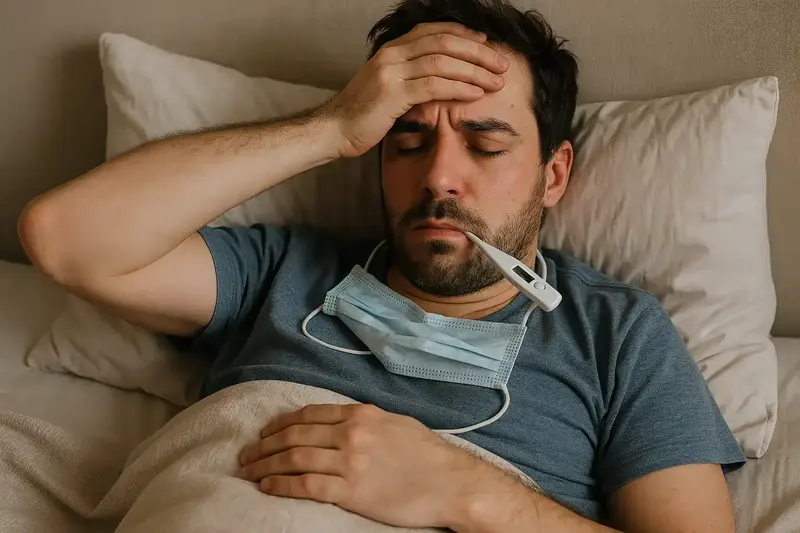- Published on: Aug 05, 2020
- 2 minute read
- By: Dr Rajan Choudhary
Diagnosing Cancers Through A Blood Test
Diagnosing cancer is difficult.
Cancer is a group of diseases in which healthy cells in our body undergo DNA changes. This affects the cell's programming, and instead of performing its regular functions, it begins to divide. Uncontrollably. This division causes greater and greater growth that uses up valuable resources and nutrition, destroys the healthy organs around it, and ultimately puts the body under so much strain it can cause death.
How do we diagnose cancer? If we are lucky we may notice unusual new symptoms. Unintended weight loss, excessive tiredness, bleeding from unusual places, difficulty breathing. It depends on the type of cancer. For some cancers, we have screening programmes, where we look for signs of cancer in people we know are at higher risk. But most of the time the symptoms are only detected when the cancer is advanced enough to cause damage to the body.
In some cases it can already be too late. Pancreatic cancer is notorious for not showing signs until the cancer is too advanced to operate, leaving patients with just 3-6 months of life expectancy.
If we recognise the symptoms we still need to run scans to see the size of the tumour, where it is, and obtain biopsies. Biopsies are vital in figuring out exactly what type of cancer is present, what medications would work against it and what the patients prognosis may be. Whether its by cutting out parts of the tumour directly, with a needle or with endoscopes, biopsy procedures are invasive, uncomfortable and sometimes painful.
What if there was a different way? What if you could take a blood sample and find out if a person has cancer? This dream is becoming slowly more and more real.
CIRCULATING TUMOUR DNA
Circulating Tumour DNA (ctDNA) is found in the blood and refers to DNA that comes from cancerous cells and tumours. Normally this is contained within the centre of a cell, in its nucleus. As a tumour grows, some cancerous cells can die and break apart. When this happens the contents of the cell are released into the blood, including pieces of the mutated DNA. Detecting this DNA is helpful for many reasons.
- It can diagnose a tumour based off the mutations present on the DNA. Different cancers will have different mutations, and matching these up can show whether cancer is present before it starts showing symptoms
- If we know cancer is present, we can use the DNA to create personalised medical therapy that is specific to one particular cancer in that particular individual. In the future, this could lead to a therapy that does not have as many side effects as chemo and radiotherapy
- Repeated blood tests during treatment to look at levels of ctDNA could show whether the treatment is working. A decrease in ctDNA levels would correspond to a decrease in tumour size
- Similarly, a lack of ctDNA would show treatment was successful, and the patient is remission free.
This all seems too good to be true. One blood test and you could know if you have cancer years before your symptoms start forming.
In July 2020 an international team of researchers published a study showing a non-invasive blood test was able to detect whether a person had one of five common types of cancer, up to four years before cancer would otherwise have been detected through our current methods. Stomach, oesophageal, colorectal, lung and liver cancer were the types included in the study.
It had a 91% success rate in patients who were otherwise asymptomatic, and 88% successful in detecting cancer in patients who were known to have cancer. If the test states you don’t have cancer, it was shown to be 95?curate.
This incredible study took over 10 years to conduct with over 120,000 participants who gave blood samples at regular intervals, as well as regular check in with physicians to monitor symptoms. Over 1.6 million specimens were collected and archived for this gargantuan project.
Specialists not involved with the research project have praised it, saying its methods are robust and the test is an essential first step towards commercial cancer screening. Of course, we still have many years and lots more research to do before we can achieve this goal, but the results are exciting nonetheless.









